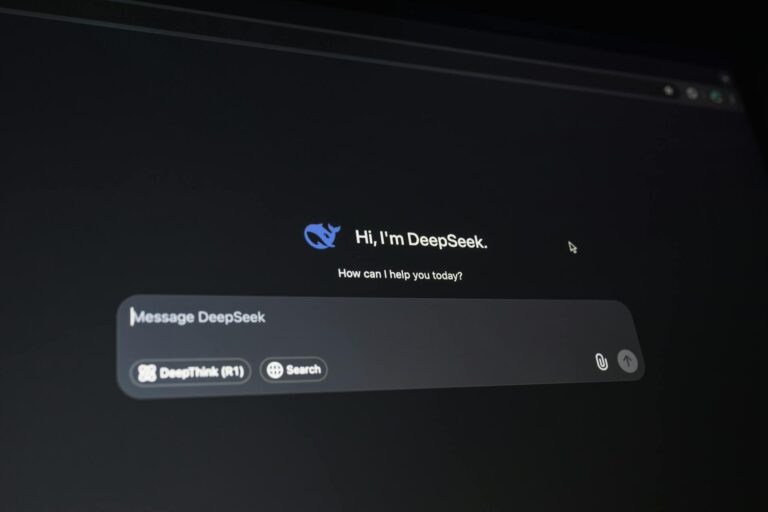
The process of web testing has long been established; A/B testing (also known as split testing or bucket testing) is a method of comparing two versions of a webpage or app against each other to determine which one performs better.
It is an effective but sometimes limited method, and means that users looking for in-depth results and intelligence often have to run myriad A/B tests.
But the emergence of AI and future technologies could be about to change the game, as is proving the case throughout the enterprise technology world. AI is helping companies test a number of variables across far broader user journeys, resulting in significantly deeper and more valuable insights in a far speedier fashion that offered by A/B testing.
One of the companies trying to pioneer Software-as-a-Service AI as the new standard in marketing and testing technology is Evolv Technologies, which says its platform gives marketers the power to simultaneously test multiple potential improvements to their websites and apps, allowing for experimentation to be carried out at “a scale never before achieved”.
The company is a new one, but one with a wealth of experience having been spun out of Sentient Technologies to become a standalone company in late 2018. Michael Scharff was a key factor in the move, having joined Sentient in August last year, first to advise its board on driving revenues and scale its Ascend platform, and then joining as COO and CEO.
“It took me about 24 hours to decide I really liked the Ascend product and as a consumer of products like that it was really unique and offered a different value proposition. I quickly realised that it solved a number of problems I’ve had in my past life with testing and optimisation,” he tells Digital Bulletin.
The past life Scharff speaks of saw him help launch Best Buy’s first website in 2000, then spend seven years working for Toys R Us’ digital business, driving an international expansion. It means he speaks from a place of authority on testing and mapping optimum user journeys.
He found a business that was spread too thin across a number of business areas, taking in broad-based AI research and development, an equity stake in a hedge fund and the Ascend platform.
“The company had too many things going on to be really effective in building the Ascend business at scale the way it needed to, so I worked with the board to spin off the Ascend business into a standalone company,” he comments.
Free from the shackles of a previously convoluted structured and muddled product focus, Evolv has been able to focus its energies on the Ascend platform. It has been boosted in recent months by a $10 million series A funding round led by Horizons Ventures, and a number of significant new clients, including Verizon and energy multi-national Innogy.

Scharff says that the platform is perfect for large-scale enterprise: “Most big companies have really large backlogs of ideas they want to test, and from my experience it is not uncommon for that backlog to be around two years long. You’ll have a variety of teams – marketing, merchandising, logistics – wanting to test on the platform.
“You need a lot of traffic to do testing and you need a lot of resources to build the creative and the various elements behind each test as well as the analytics. What Ascend does is really use AI to break down the limitations and allow users to not test just one idea at a time.
“Users can test 15,20 or 30 ideas rapidly across multiple-page funnels and automatically evolve those into new tests. It significantly increases the speed that each test takes and decreases the effort it takes to test.”
It is a little bit more work up front to set up a large-scale test, but users are able to set up the equivalent of hundreds of A/B tests in the Evolv environment that can happen all at once.
Scharff says that it is allowing customers to test millions of scenarios and combinations that would be prohibitive under A/B testing, and allowing business objectives to be achieved faster.
“Whereas in the A/B environment the goal is to find an answer to a hypothesis – is blue or red better? – our system is designed around KPIs. So, you put in your business objectives, whether its email sign ups, transactions, a click through to a page, a dwell time or average order value, and the system will optimise a design based on your KPI,” he comments.
“It is constantly improving performance; almost all of our experiments yield a positive ROI during the actual test, which is really unique. In the A/B environment, usually one out of five or six tests yields a positive result, where the outcome is better than control.
“The other results are either flat or worse. Our platform is the inverse, so you can improve ROI in the process of testing.”
The Ascend platform can be implemented into users’ sites using just a single line of Java code, either directly into a header or through a tag manager, allowing businesses to quickly get on with testing. But increasingly, enterprise customers are utilising
Evolv’s full stack on their server sides and building codes into their own systems.
“It has its own benefits, one is that it is more secure than Javascript and we’re certainly seeing larger clients like financial institutions looking for that level of security,” says Scharff.
“It also allows for testing beyond the website experience, so once you get into the enterprise infrastructure you can start testing things. We’ve got customers testing things like SEO, price engineering and optimisation, so you can really optimise anything where you have a number of variables that you can optimise against to create a better outcome.
AI has a huge amount of buzz around it, and we'll see more companies experimenting with the technology to solve problems
“That’s something we are really excited about because they’re testing things we hadn’t thought of and that will continue to scale as we get more customers using this from the enterprise side.”
The Ascend platform is another example of how AI is shaking up the world of enterprise, and Scharff believes that the speed of progress will only accelerate over the next five years.
Every business process within large-scale enterprise will have some element of AI built into it, he believes, and how companies adapt their systems and structures to integrate future technologies will be one of the defining challenges businesses face.
“AI has a huge amount of buzz around it, and we’ll see more companies experimenting with the technology to solve problems,” he says. “AI systems rely heavily on data quality, so companies face the challenge of standardising and creating data protocols. For AI to be used effectively, companies are going to have to improve their management of data.
“I also think we’re going to see some surprises, both on the upside of the downside where people will experiment, things will either work better than expected, or probably have outcomes we didn’t expect it.
“I think the best enterprises are going to be the ones that really look to find ways to automate tasks that can’t currently be carried out by humans, and free them up to really drive creative and strategic decision making. AI is going to have a pretty significant impact on everything enterprises do. It’s an exciting time to be in that space, for sure.”


